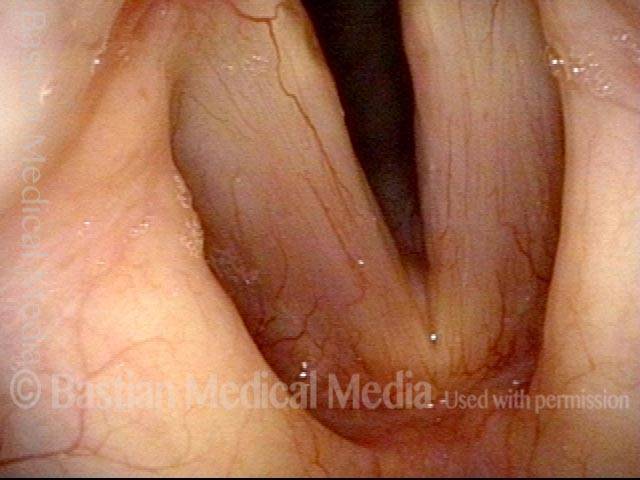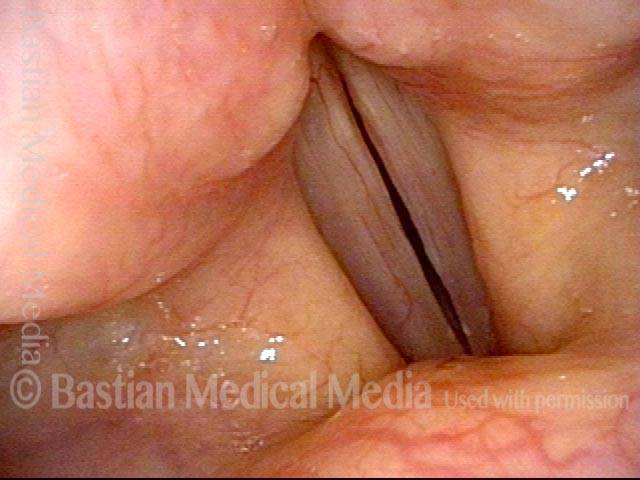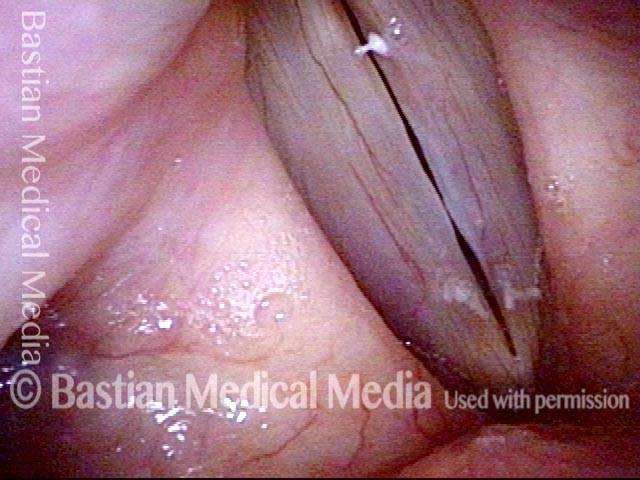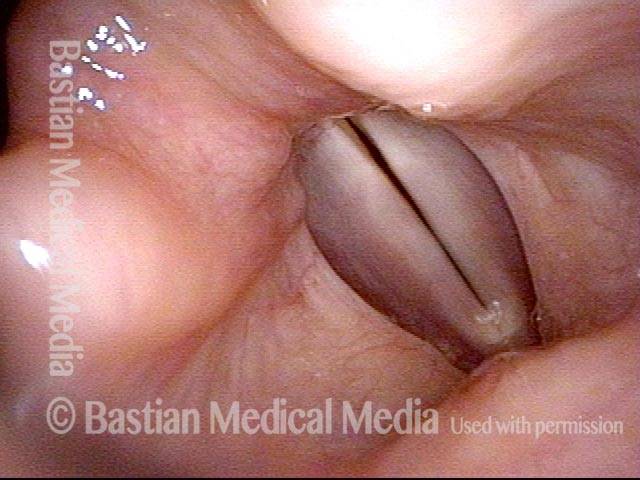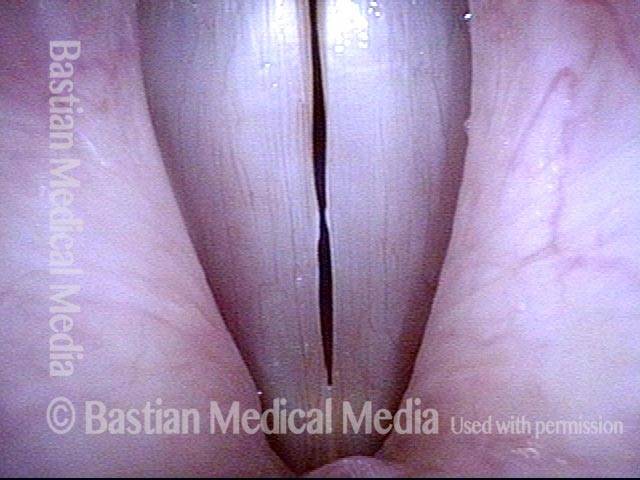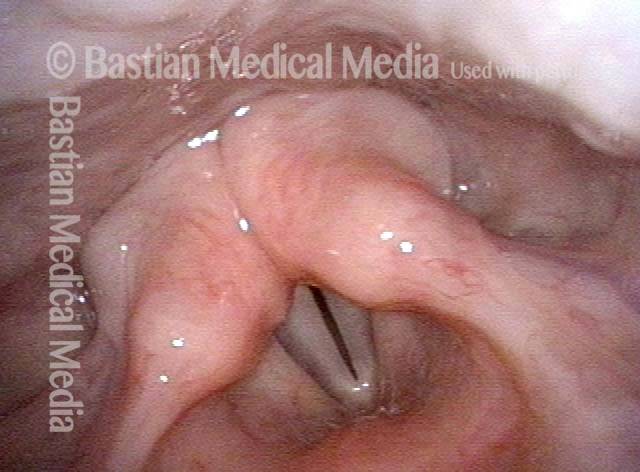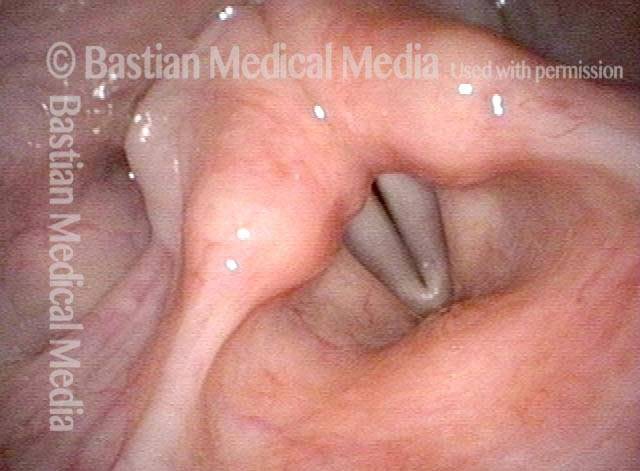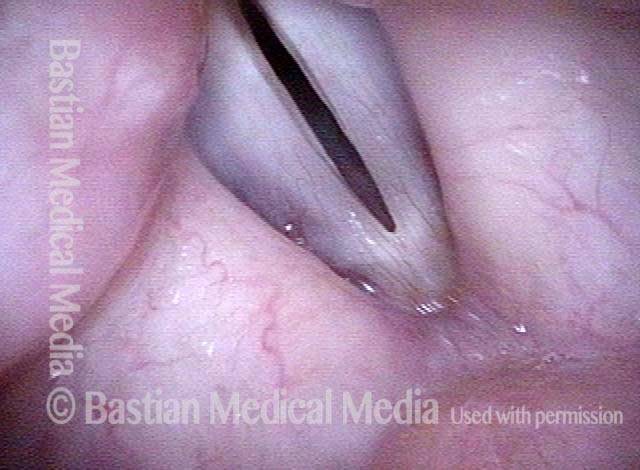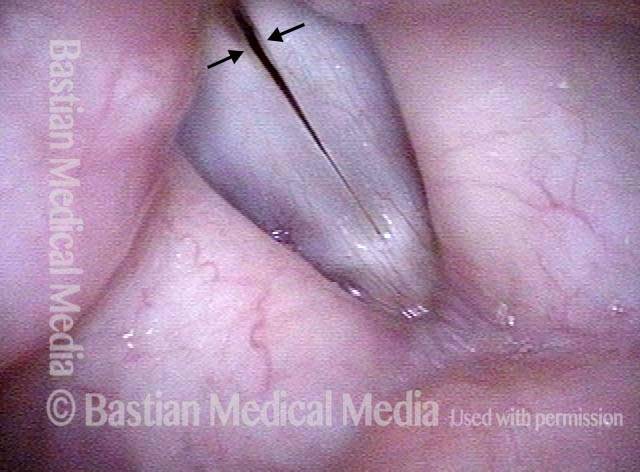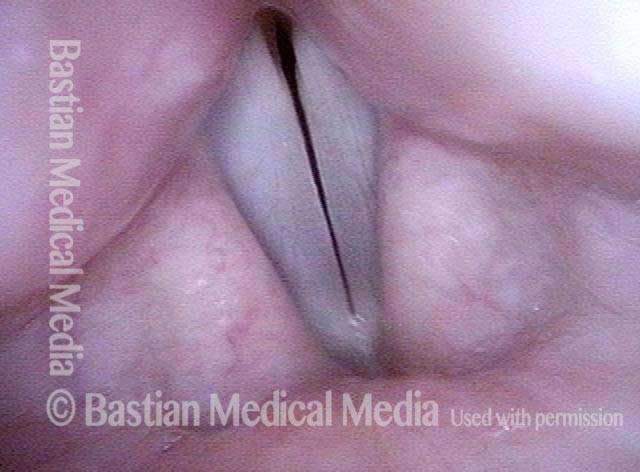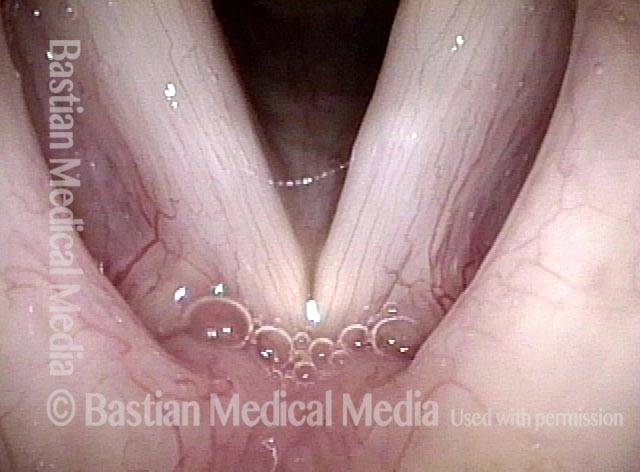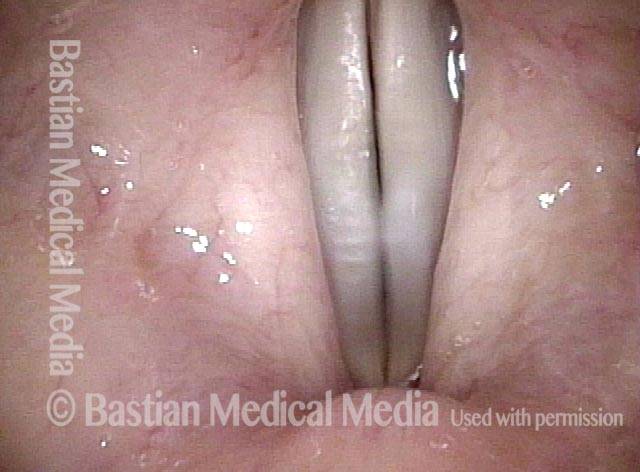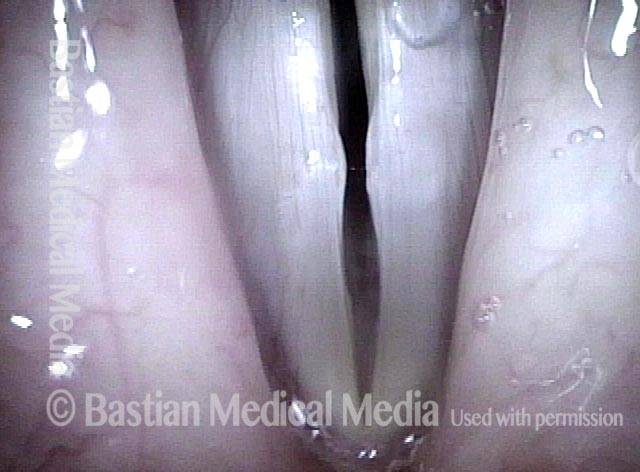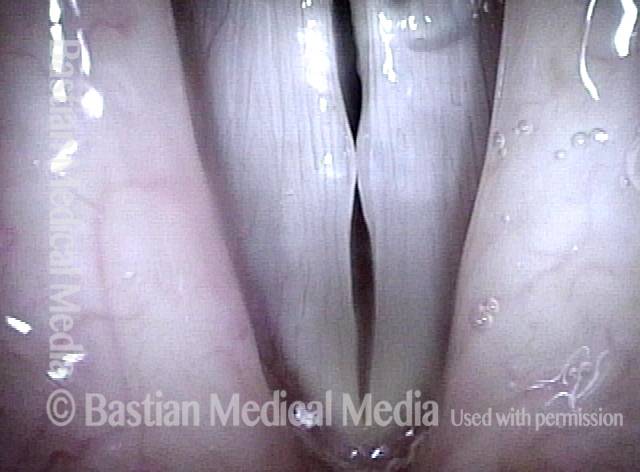Mucosal Edema or Swelling
Mucosal edema or swelling is the build-up of edema (tissue fluid) within the mucosa, the layer of tissue that lines the body’s interior. In the larynx, this build-up of edema usually occurs at the mid-point of the vocal cords, as the body’s response to vocal overuse, and it resembles a small, low-profile blister.
Vocal overuse triggers this build-up of edema because, with vocal overuse, the vocal cords undergo more vibratory stress and trauma than they are designed to handle. The body responds by gathering edema to form a protective cushion. However, this swelling distorts the vocal cord’s shape and can limit its flexibility, which can thereby impair the voice, making it sound acutely husky or hoarse.
From mucosal edema to nodules
If the voice is rested even moderately, this edema fluid will disperse rapidly—within 12 to 24 hours if not severe—so that the swelling vanishes and the voice returns to normal. However, if the voice continues to be overused, then the body may build up more chronic swelling materials (no longer just edema), so that the vocal cords develop nodules.
Swelling
Swelling (1 of 4)
Swelling (1 of 4)
Swelling (2 of 4)
Swelling (2 of 4)
Swelling (3 of 4)
Swelling (3 of 4)
Swelling (4 of 4)
Swelling (4 of 4)
Indicator Swellings
Pre-phonatory (1 of 4)
Pre-phonatory (1 of 4)
Phonation (2 of 4)
Phonation (2 of 4)
Subtle swellings (3 of 4)
Subtle swellings (3 of 4)
Indicator swellings (4 of 4)
Indicator swellings (4 of 4)
Indicator Lesions and MTD
Breathy voice (1 of 6)
Breathy voice (1 of 6)
Phonation (2 of 6)
Phonation (2 of 6)
Open phase (3 of 6)
Open phase (3 of 6)
Closed phase (4 of 6)
Closed phase (4 of 6)
Open phase, indicator lesions (5 of 6)
Open phase, indicator lesions (5 of 6)
“Closed” phase, MTD (6 of 6)
“Closed” phase, MTD (6 of 6)
Use High Voice & Close, Clear View to Reveal What Is Concealed
Breathing position (1 of 4)
Breathing position (1 of 4)
Phonation (2 of 4)
Phonation (2 of 4)
Obvious swellings, open phase (3 of 4)
Obvious swellings, open phase (3 of 4)
Obvious swellings, closed phase (4 of 4)
Obvious swellings, closed phase (4 of 4)

Vocal Fold Swelling Checks
In this video, Dr. Bastian introduces and demonstrates two swelling checks: two simple vocal exercises that can be used to help detect the early signs of vocal fold injury.
He also discusses the physiology of vocal fold injury and explains how to make the best use of these swelling checks in your daily routine.
